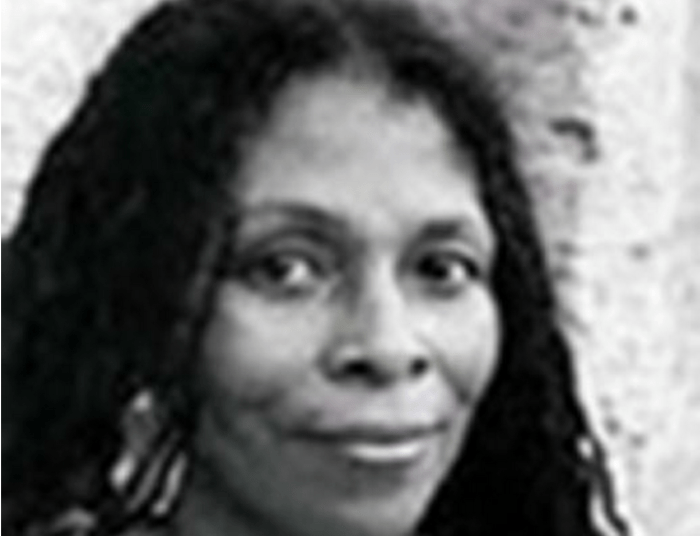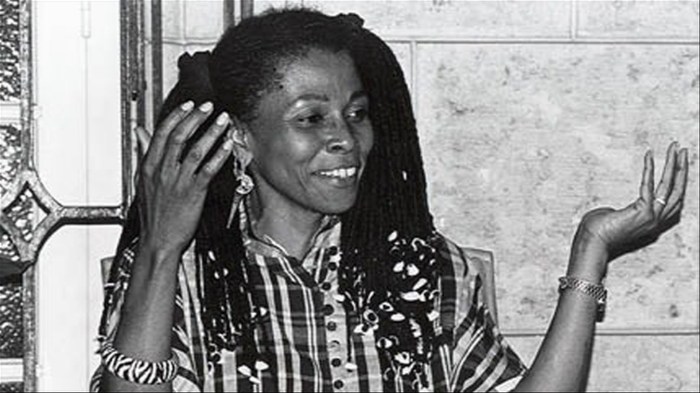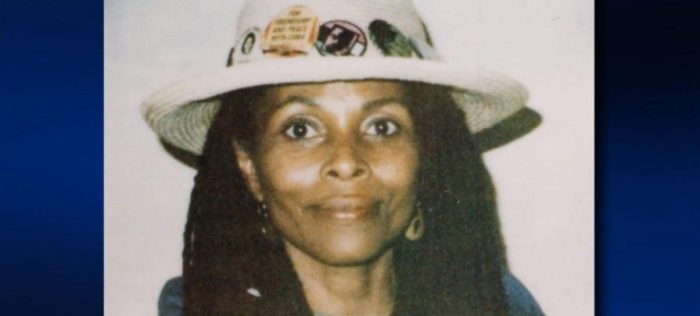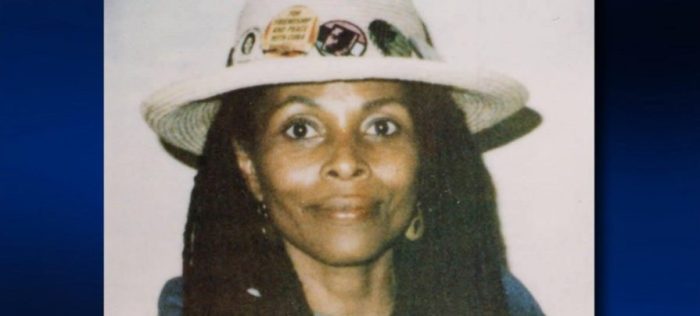She’s been called a revolutionary, a freedom fighter, and a hero. But she’s also been labeled a fugitive, a cop killer, and a terrorist. Assata Shakur, born Joanne Chesimard, is a figure who sparks passionate debate and polarizing opinions. Her life story is a complex tapestry woven with threads of activism, violence, and escape.
From her early days as a Black Panther to her controversial escape from prison, Shakur’s journey has ignited a firestorm of controversy, leaving many questioning her legacy and the motivations behind her actions.
In this deep dive, we’ll explore the multifaceted story of Assata Shakur, examining the arguments surrounding her “hero” status and the fierce backlash it has generated. We’ll delve into the events that shaped her life, the legal proceedings that followed, and the ongoing debate surrounding her actions and the consequences of her escape.
Get ready to dive into a world where perspectives clash and the line between freedom fighter and fugitive becomes blurred.
Assata Shakur

Assata Shakur, born Joanne Chesimard, is a figure who has been both celebrated and condemned for her life of activism and her involvement in the Black Liberation Army. Her story is a complex one, marked by deep commitment to racial justice, allegations of violent crimes, and a controversial escape from prison.
Early Life and Activism
Assata Shakur was born in 1947 in New York City. Her early life was shaped by the realities of racial segregation and inequality in America. She became involved in the Black Power movement in the 1960s, joining the Black Panther Party, a revolutionary organization advocating for Black self-determination and an end to systemic racism.
Involvement with the Black Liberation Army
In the early 1970s, Shakur joined the Black Liberation Army (BLA), a more militant group that emerged from the Black Panther Party. The BLA sought to overthrow the U.S. government through armed struggle, and Shakur became a prominent member.
The 1973 Shootout and Escape
In 1973, Shakur was involved in a shootout with New Jersey State Troopers that resulted in the death of one trooper, Werner Foerster. Shakur was convicted of murder, assault, and other charges. She escaped from prison in 1979 and fled to Cuba, where she was granted asylum.
Perspectives on Assata Shakur
Shakur’s actions and her escape from prison have been subject to intense scrutiny and debate. Some view her as a revolutionary hero who fought against racial injustice, while others see her as a dangerous criminal who committed acts of violence.
Supporters of Assata Shakur
Supporters of Assata Shakur argue that she was a victim of a racist justice system and that her actions were justified by the systemic oppression faced by Black people in America. They point to the history of police brutality and racial discrimination as evidence of the need for armed resistance.
They also argue that the evidence against her was weak and that her trial was unfair.
Critics of Assata Shakur
Critics of Assata Shakur argue that she was a violent criminal who took the life of a law enforcement officer. They emphasize that her escape from prison was an act of defiance against the legal system and that her continued refuge in Cuba is a sign of her disrespect for American justice.
They also point to the fact that she was convicted by a jury of her peers, and that her escape does not negate the seriousness of her crimes.
The Legacy of Assata Shakur
The legacy of Assata Shakur remains a subject of controversy. Her supporters see her as a symbol of Black resistance and a powerful voice for social justice. Her critics view her as a fugitive from justice and a dangerous example of the dangers of violent extremism.
Regardless of one’s perspective, her story raises important questions about the nature of justice, the limits of activism, and the ongoing struggle for racial equality in America.
The “Outrageous Hero” Narrative and its Critics

The portrayal of Assata Shakur as a hero has sparked intense debate, with supporters celebrating her as a revolutionary figure fighting against oppression and critics condemning her as a convicted criminal who escaped justice. Understanding this narrative requires examining the arguments of both sides and the complex historical context that informs their perspectives.
Arguments for Assata Shakur’s Hero Status
Those who view Assata Shakur as a hero often cite her activism within the Black Power movement, her alleged victimization by a racist and corrupt system, and her defiance against perceived injustice.
- Revolutionary Activism:Shakur’s involvement in the Black Liberation Army (BLA), a radical group advocating for armed resistance against systemic racism, is seen by some as a courageous act of defiance against a system that denied Black people their fundamental rights. They point to her commitment to fighting for social justice, even in the face of extreme danger, as a testament to her heroic character.
- Allegations of Police Brutality:Supporters argue that Shakur was a victim of police brutality and racial bias, pointing to the alleged misconduct of the officers involved in the incident that led to her conviction. They believe she was unfairly targeted and framed by a system that routinely discriminates against Black people.
- Escape as Resistance:Shakur’s escape from prison in 1979 is often interpreted as an act of defiance against a system she saw as unjust and oppressive. Supporters view her escape as a symbolic rejection of the legal system and a powerful statement against the pervasive racism and injustice she experienced.
Criticisms of the “Outrageous Hero” Narrative
Critics of the “Outrageous Hero” narrative argue that Shakur’s actions, particularly her alleged involvement in the death of a police officer, cannot be justified. They emphasize the seriousness of her crimes and the need for accountability, regardless of her political beliefs or the broader social context.
- Conviction for Murder:Shakur was convicted of murder and assault in the shooting of New Jersey State Trooper Werner Foerster. Critics argue that this conviction, upheld by multiple courts, should not be dismissed or minimized, regardless of any alleged misconduct by law enforcement.
They believe that the rule of law must be upheld, and that Shakur’s actions, regardless of her political motivations, cannot be excused.
- Escape as Flight from Justice:Critics see Shakur’s escape from prison as an attempt to avoid accountability for her crimes, rather than a legitimate act of resistance. They argue that her flight from justice undermines her claims of being a victim of a corrupt system and casts doubt on her commitment to social justice.
- Violence as a Means to an End:Critics question the use of violence as a strategy for achieving social change. They argue that resorting to violence only perpetuates a cycle of violence and undermines the principles of non-violent resistance advocated by figures like Martin Luther King Jr.
and Mahatma Gandhi.
The “Left’s Glorification” and its Impact
The portrayal of Assata Shakur as a revolutionary hero by certain segments of the left has sparked significant controversy and debate. This “glorification” has manifested in various ways, from artistic expressions to political activism, raising important questions about the complexities of justice, historical narratives, and the evolving landscape of social movements.
The Celebration of Assata Shakur
The celebration of Assata Shakur by certain segments of the left has taken various forms, including:
- Artistic Representations:Artists, musicians, and filmmakers have used Shakur’s story as inspiration for their work, often depicting her as a symbol of resistance against state oppression. Notable examples include the song “Assata Taught Me” by Public Enemy and the documentary “Assata Shakur: Free at Last.”
- Activist Advocacy:Many activists and organizations, particularly those focused on issues of racial justice and police brutality, have embraced Shakur’s narrative as a testament to the ongoing struggle against systemic racism. They view her escape from prison as a victory against a corrupt and oppressive system.
- Intellectual Discourse:Scholars and intellectuals have analyzed Shakur’s case and her escape from prison as a symbol of resistance and a critique of the American justice system. They often argue that her actions were justified in the context of the political and social realities of the time.
The Implications of Glorification
The glorification of Assata Shakur has significant implications, particularly in relation to the ongoing debate about police brutality and the Black Lives Matter movement:
- Legitimizing Violence:Some critics argue that celebrating a figure convicted of murder, even if they believe her to be wrongly accused, sends a dangerous message about the legitimacy of violence. They worry that it could undermine efforts to achieve social justice through peaceful means.
- Divisive Narratives:The debate surrounding Assata Shakur has become a focal point for broader discussions about the role of law enforcement, the history of racial injustice, and the complexities of political activism. This can lead to polarized views and make it difficult to find common ground on issues of criminal justice reform.
- Impact on the Black Lives Matter Movement:The Black Lives Matter movement has been criticized by some for embracing figures like Assata Shakur, arguing that it undermines the movement’s broader message of non-violence and justice. However, others argue that the movement’s focus on systemic racism and police brutality requires a nuanced understanding of the historical context and the struggles faced by Black communities.
Potential Consequences
The potential consequences of celebrating a figure like Assata Shakur are complex and multifaceted:
- Legal Implications:The fact that Shakur remains a fugitive from justice raises questions about the legal implications of celebrating her. Some argue that it could be seen as condoning her actions and undermining the rule of law.
- Impact on Public Opinion:The debate surrounding Assata Shakur has the potential to influence public opinion on issues of justice, law enforcement, and race relations. This could have significant consequences for ongoing efforts to address systemic racism and police brutality.
- Impact on Social Movements:The celebration of Assata Shakur has become a flashpoint in the broader debate about the strategies and tactics of social movements. This could have a significant impact on the direction and effectiveness of future movements for social justice.
Book Review: Assata: An Autobiography
Assata: An Autobiography, published in 1987, is a powerful and moving account of Assata Shakur’s life as a Black Panther and her subsequent escape from prison after being convicted of murder. The book is a personal narrative that details Shakur’s experiences with racism, police brutality, and the struggle for Black liberation in America.
It offers a unique perspective on the Black Power Movement and the political climate of the 1960s and 1970s.
Key Themes and Arguments
Assata Shakur’s autobiography delves into several key themes, including the pervasiveness of racism and its impact on Black communities, the role of the Black Panther Party in the fight for racial justice, and the injustices of the criminal justice system.
Shakur’s narrative emphasizes the importance of Black self-determination and the need for armed resistance against systemic oppression.
Literary Style and Impact
Assata: An Autobiography is written in a clear and engaging style. Shakur’s voice is both personal and political, and she skillfully weaves together her own experiences with historical context and political analysis. The book’s impact on readers lies in its ability to connect with the reader on an emotional level while simultaneously offering a powerful critique of American society.
It’s totally wild how some folks are trying to make a convicted cop-killer, Joanne Chesimard aka Assata Shakur, into some kind of hero. I mean, come on, she’s a fugitive who escaped prison after murdering a state trooper! It’s like trying to teach a toddler about right and wrong by showing them how to connect the dots in a coloring book like Dot to Dot for kids 100+ Connect the dots puzzles for kids – Trace and Color Fun Animals Shapes Fruits Vegetable Vehicles and much more – Activity books for kids ages 6-8.
It’s just plain wrong. She’s a criminal who needs to be brought to justice, not celebrated.
Reception and Influence
Assata: An Autobiography has been widely read and discussed, and it has had a significant influence on the public’s understanding of Assata Shakur and the Black Liberation Movement. The book has been praised for its honesty, its courage, and its insightful perspective on the struggle for Black liberation.
The Left’s obsession with glorifying Assata Shakur, a convicted cop killer who fled to Cuba, is truly mind-boggling. It’s like they’re living in some alternate reality where murdering law enforcement is a badge of honor. To get a better understanding of this bizarre phenomenon, Download And Listen Here to a podcast that dives deep into the real story behind this controversial figure.
Maybe then they’ll finally see the light and stop praising a woman who betrayed the very country she swore to protect.
It’s wild how some folks are totally down with glorifying Assata Shakur, the woman who shot a cop and escaped to Cuba. I mean, come on, it’s like they’re living in a totally different reality. Maybe they’re channeling their inner dark academia vibes with a cool Composition Notebook Dark Academia Aesthetic College Ruled With Skull Cover Design while they write their essays about the “revolutionary” life of a cop killer.
Talk about a disconnect!
However, it has also been criticized for its portrayal of violence and its alleged glorification of armed resistance.
It’s wild how some folks on the left try to make a hero out of Assata Shakur, a woman who killed a cop. I guess they think it’s cool to celebrate someone who took a life, but I just don’t get it.
Maybe they should spend their time learning how to draw instead. There’s a cool guide online called “How to Draw Coolest Things People (Faces Human Figures Poses) A Step-by-Step Guide to Sketching Faces Human Figures and Dynamic Poses” How to Draw Coolest Things People (Faces Human Figures Poses) A Step-by-Step Guide to Sketching Faces Human Figures and Dynamic Poses that could help them get better at art instead of trying to justify violence.
Maybe then they’d realize there are better ways to make a statement than by glorifying a convicted criminal.
Reception and Influence
Assata: An Autobiography has been widely read and discussed, and it has had a significant influence on the public’s understanding of Assata Shakur and the Black Liberation Movement. The book has been praised for its honesty, its courage, and its insightful perspective on the struggle for Black liberation.
However, it has also been criticized for its portrayal of violence and its alleged glorification of armed resistance.
Ultimate Conclusion

The story of Assata Shakur remains a potent symbol in the ongoing dialogue about race, justice, and the legacy of the Black Power movement. Whether you view her as a revolutionary or a fugitive, her life story compels us to confront uncomfortable truths about American history and the complex relationship between law enforcement and communities of color.
The debate surrounding Shakur is far from settled, and her legacy will continue to be debated for years to come.
FAQ Guide
What exactly happened in the 1973 shootout that led to Assata Shakur’s conviction?
In 1973, Shakur was involved in a shootout with New Jersey State Troopers. During the incident, a trooper was killed. Shakur was convicted of murder and assault, but she escaped from prison in 1979.
Where is Assata Shakur now?
Assata Shakur currently resides in Cuba, where she was granted political asylum. She remains a fugitive from the United States.
What are the arguments used by those who support Assata Shakur?
Supporters of Assata Shakur often argue that she was a victim of a racist and corrupt legal system. They believe that she was framed for the murder of the trooper and that her escape was justified because she was being unjustly persecuted.
How has Assata Shakur’s story impacted the Black Lives Matter movement?
Assata Shakur’s story has become a rallying cry for some within the Black Lives Matter movement. She is seen as a symbol of resistance against police brutality and systemic racism.

